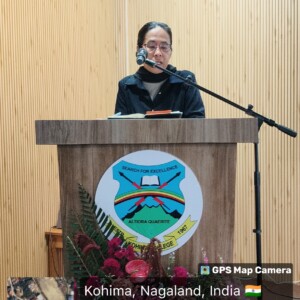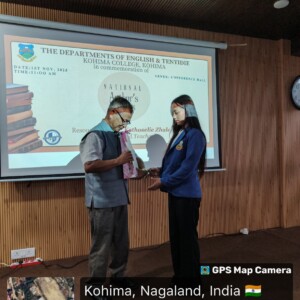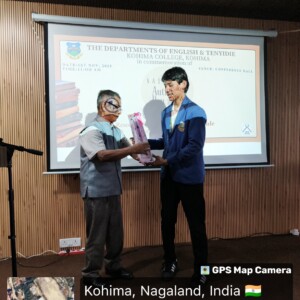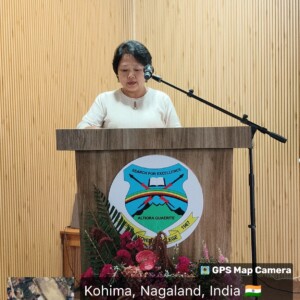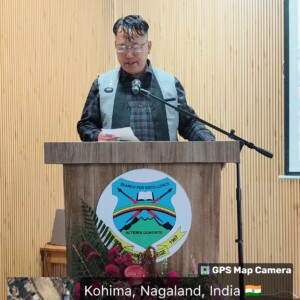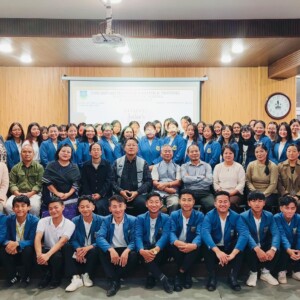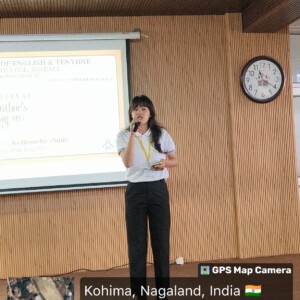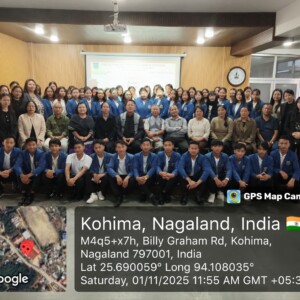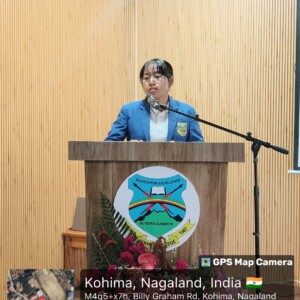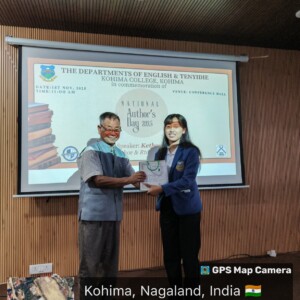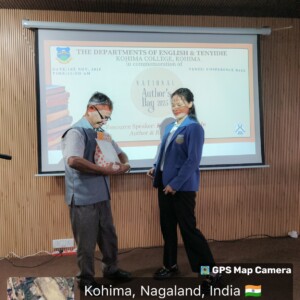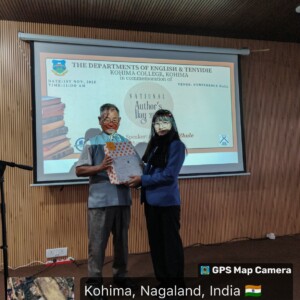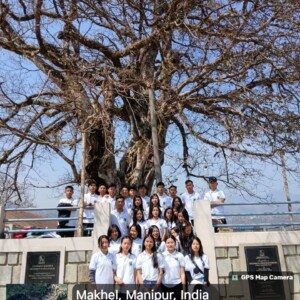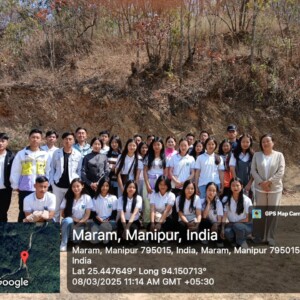November 1, 2025: Departments of Tenyidie and English Celebrates National Author’s Day
The Departments of English and Tenyidie, Kohima College Kohima (KCK) jointly celebrated National Author’s Day on November 1, 2025, at the college Conference Hall. Shri Kethoselie Zhale, noted Tenyidie author and retired teacher, graced the occasion as the Resource Speaker.
A prolific and accomplished writer in the Tenyidie language, Shri Zhale has authored nine books encompassing fiction, drama, poetry, historical narratives, and humor. Several of his works have been incorporated into the Tenyidie syllabus under Nagaland University. Presently, he serves as the Chaplain of the Rusoma Village Council.
The programme was chaired by Mr. Mhasivilie Zhale, Associate Professor, Department of Tenyidie. In her welcome address, Ms. Khriezenuo Angami, Associate Professor and Head of the Department of English, highlighted that the event was organised to celebrate and acknowledge the diverse contributions of authors to the world of literature.
In his address, the resource speaker underscored the influential role of authors in nation-building. He urged students and faculty to nurture their literary talents and contribute meaningfully to society through writing. He also encouraged the students to draw inspiration from writers’ creativity and aspire to live exemplary lives.
A melodious song presented by students of KCK added charm to the occasion. One of the highlights of the celebration was the release of the first edition of the Department of English newsletter “Eunoia”, an initiative aimed at providing students a platform to hone their creative writing, editing, and documentation skills. The newsletter was officially released by the resource speaker along with the Heads of both departments.
The event also witnessed the felicitation of winners of the Essay Writing Competition held on September 29, 2025.
In the English category, Thüjokhrüto Keyho (BA 3rd Sem, English Dept.) secured the 1st position, followed by Merübeinuo Zumu (BA 3rd Sem, Political Science Dept.) and Keneize-u Mechie-o (B.Com 5th Sem, Commerce Dept.) in 2nd and 3rd positions respectively.
In the Tenyidie category, Mhashevinü Sale (BA 3rd Sem, Tenyidie Dept.) bagged the 1st position, while Mhalevonuo Khezhie (BA 1st Sem, Tenyidie Dept.) and Viketounuo Kesitsu (BA 1st Sem, English Dept.) secured the 2nd and 3rd positions respectively. All winners received literary books and certificates.
The event concluded with a vote of thanks delivered by the chairperson. A total of 15 faculty members and 54 students participated, marking the day as a meaningful celebration of literary excellence and inter-departmental collaboration.mic learning with lived heritage, fostering both intellectual and cultural growth.
March 8, 2025: Department of Tenyidie organised an educational trip for its 4th Semester SEC class of 2025
An educational field trip was organised for the students of the SEC 4th Semester, Department of Tenyidie, on 8th March 2025. A total of 31 students, accompanied by one faculty member, participated in the visit to Mekhrora, a historically and culturally significant site situated in the Senapati district of Manipur.
The primary objective of the visit was to explore and gain firsthand knowledge about the ancestral heritage and oral traditions embedded in the site. Mekhrora is traditionally considered the place of origin for the community and holds vital importance in the collective memory of the Tenyimia people.
During the visit, students encountered two prominent symbolic landmarks:
- The Banyan Tree: This site marks the legendary spot where a mother gave birth to three beings — a human, a spirit, and a tiger. This symbolic narrative reflects the cosmological belief in the coexistence and eventual divergence of the human, spiritual, and natural worlds, an idea deeply rooted in indigenous worldviews.
- The Pear Tree: Locally regarded as the walking stick of our forefathers, this tree symbolises guidance, resilience, and the enduring connection between past and present generations.
The visit provided the students with a deeper understanding of their cultural roots, enriched their knowledge of oral history, and emphasised the importance of preserving indigenous narratives. Such field experiences are crucial in connecting academic learning with lived heritage, fostering both intellectual and cultural growth.

